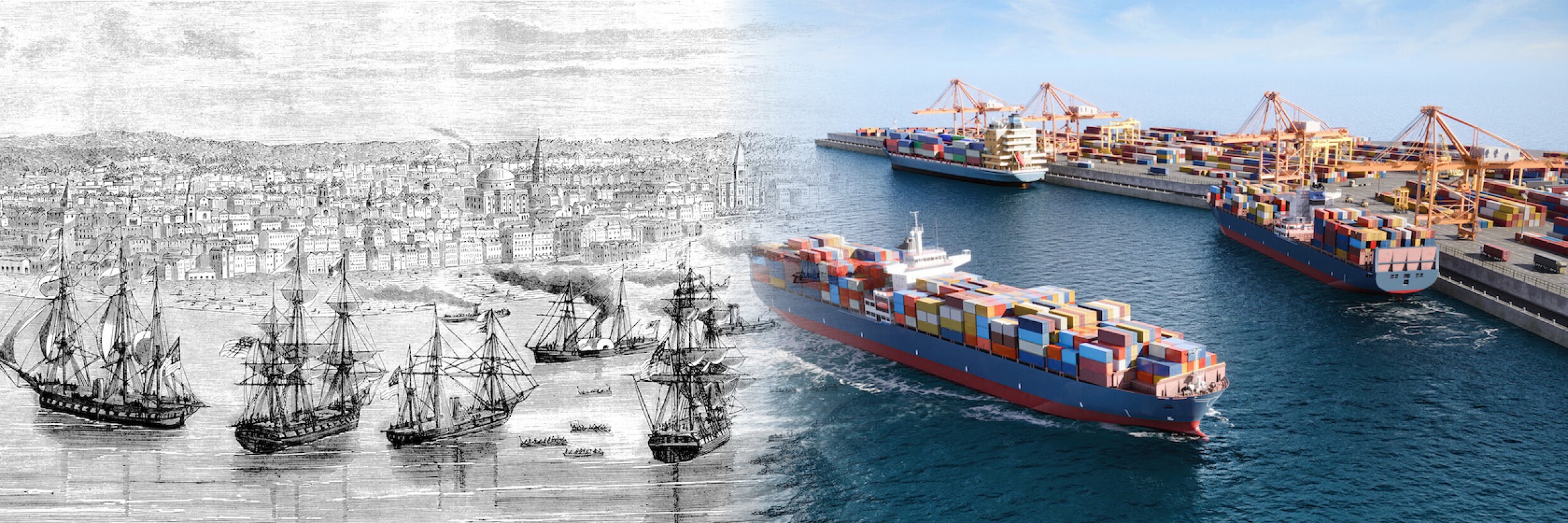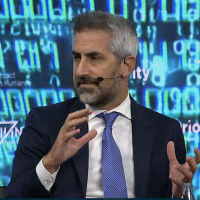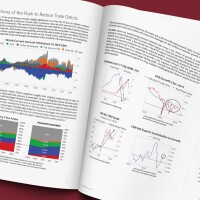Modern Mercantilism

We are in a new geopolitical and macroeconomic paradigm. For decades, globalization—characterized by rising trade and capital liberalization—defined the world order. That era is over. In its place is emerging what we call “modern mercantilism,” where national self-interest takes precedence over global cooperation. While this transition has been underway for years, it has now sharply accelerated. A global system of interdependence, built since the dawn of the US-led postwar era, is unraveling. Explore a selection of our insights on this shifting landscape and the profound implications it holds for the global economy, markets, and monetary system.
January 14, 2026
In an excerpt from our Q4 CIO call, Karen, Greg, and Bob describe the new investment regime—defined by AI and modern mercantilism—and share how investors can build a resilient portfolio in the current environment.
November 26, 2025
Co-CIO Greg Jensen joins Nicolai Tangen, CEO of Norges Bank Investment Management, to unpack the geo-political and economic impact of modern mercantilism, the global AI race, and how Bridgewater is building for the future.
November 13, 2025
As countries grapple with the US’s more mercantilist trade policy, Canada offers a window into how different economies may respond to these pressures.
October 16, 2025
Cheap, abundant electricity is critically important to the AI race and national competitiveness. We take stock of energy supply and security across the US, China, and Europe.
October 14, 2025
As modern mercantilism accelerates and the AI revolution unfolds, the forces shaping today’s markets are testing the economic balance. In this excerpt from our Q3 call, Co-CIO Bob Prince shares his perspective on what this means for investors navigating a world moving away from equilibrium.
July 2, 2025
Without more domestic manufacturing, tariffs are likely to result in lower margins and higher prices. In Part 1 of this series, we explore the structural pressures that make growing US manufacturing so challenging.
June 18, 2025
Co-CIO Greg Jensen shares his thoughts on how modern mercantilism—including trade policy, geopolitical risk, and capital flows—is progressing, our outlook for the US economy, building resilient portfolios in this environment, and more.
March 10, 2025
For decades, America has consumed much more than it produces, financing persistent trade deficits with debt that foreign investors are happy to buy. President Trump is unwilling to accept this state of affairs. In a guest essay for the New York Times, co-CIO Karen Karniol-Tambour describes what this shift means for Europe’s economic and security paradigm, the changes that are needed, and the barriers to reform.
February 20, 2025
Nir joins the “Board of Changemakers” panel at FII Priority in Miami to discuss ongoing geopolitical fragmentation, the changing macroeconomic landscape, and how Bridgewater has aligned itself to help investors navigate this challenging environment.
November 25, 2024
As a key part of understanding what is to come, we are working through how to model the effects of modern-day mercantilism. In this report, we share some thoughts on that endeavor.
January 6, 2025
With central banks on the verge of achieving their goals—supporting stability, profits, and asset prices—global political shifts risk upsetting the balance. Our CIOs describe these dynamics and what they mean for investors.
More Featured Research













